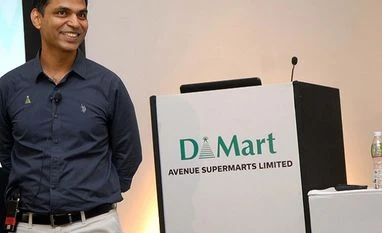Like his boss, the reclusive stock market investor Radhakishan Damani, Ignatius Navil Noronhaa, managing director of Avenue Supermarts, which runs the retail chain D-Mart, shies away from the media.
"We want to keep things simple and are not in a hurry to open stores," is a sentence often used by Noronha about the company's performance.
But an opening rally made the Avenue stock list at twice the upper band of its IPO price and made Noronha richer by Rs 900 crore by virtue of his holding 13.7 million shares of the company.
This spurt in wealth is unlikely to change the 42-year-old Bombay boy, say people close to him, pointing out that he took a day off to celebrate his daughter's birthday on Wednesday, a day after the splendid listing of the company's shares.
D-Mart's promoter Damani hired Noronha, who was in his early 20s then, from consumer goods giant Hindustan Unilever, where he was a young executive in market research, sales and modern trade. It was Noronha’s business acumen that impressed Damani, people say. Noronha, who has connection with coastal Karnataka and also speaks Konkani, has a management degree from the Narsee Monjee Institute of Management Studies.
D-Mart was set up in 2001 and Noronha joined it in 2004 as head of business.
Also Read
People who know him say the recent IPO was the only time when Noronha addressed the media. "He attends conferences and seminars as a participant and not as a speaker," says an executive who knows him.
"What makes him special is that he knows how to run the company profitably in a segment that has high overheads," says the executive with DMart.
The executive said Noronha's cabin in the chain's Powai office was a fourth the size of that of any retail CEO. D-Mart’s stores are low on frills and their merchandise is value for money. Its headquarters are in Thane, on Mumbai’s outskirts.
D-Mart owns most of its stores unlike other chains. It is a consistently profitable retailer and has the best margins in the industry.
And Noronha is behind the best practices that have helped DMart, which pays its suppliers within 48 hours of delivery. They, in turn, allow an additional 2-3% gross margin to the chain, enabling it to keep prices low.
The 15-year-old retail chain has made profits for at least the last five years. Relatively younger chains such as Aditya Birla Retail, Tata Tesco-owned Star, Raheja-owned Hypercity and Spencer’s are yet to make net profits.
D-Mart’s numbers are the best in the industry. Its topline has grown at a compounded annual rate of 40.28% from Rs 2,222.4 crore in 2011-12 to Rs 8,606.1 crore in 2015-16. India’s largest retailer by revenue, Reliance Retail, posted a topline with a compounded annual growth rate of 29.86%.
D-Mart has grown its profits at a CAGR of 51.85% from Rs 60.4 crore in 2011-12 to Rs 321 crore in 2015-16. It posted a like-for-like growth of 22.49% in 2015-16, one of the best rates in food and grocery retail.
)